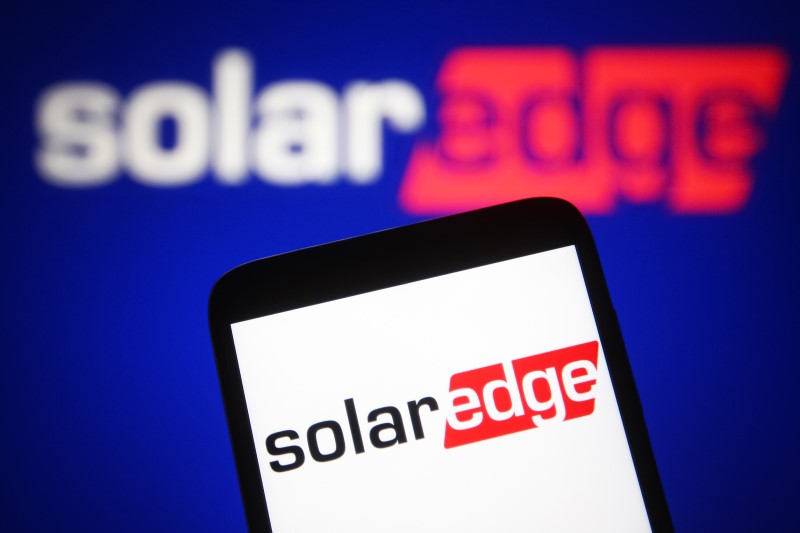© Pavlo Gonchar / SOPA Images/Sipa via Reuters Connect
SolarEdge Technologies (NASDAQ:), a company with a market cap of 6750M USD according to InvestingPro data, has disclosed the positive outcomes of its first-of-its-kind home battery scheme in the UK, which was implemented last winter as part of the National Grid (LON:) ESO Demand Flexibility Service (DFS). The program aimed to incentivize less electricity use during peak times by offering financial rewards to participants.
The National Grid offered incentives to participants who reduced their electricity usage during peak times to lessen the grid’s demand. SolarEdge home battery owners, however, were exempt from reducing their electricity usage. Instead, they earned financial rewards for their stored battery power during peak hours.
Smart Metering Systems Plc (SMS), a leading UK energy infrastructure company, utilized SolarEdge’s smart technology to autonomously charge participants’ batteries remotely before each DFS event. It then maximized power export to the grid during the event, eliminating manual participation from homeowners.
InvestingPro Tips indicate that SolarEdge holds more cash than debt on its balance sheet and yields a high return on invested capital, shedding light on the company’s strong financial position and making it a potentially lucrative investment.
Battery owners participating in the scheme earned up to ten times more financial rewards than those who manually reduced their energy consumption for DFS. The highest financial reward received by a battery owner during a single DFS event reached £25.60, with an average reward of £6.52. In contrast, UK manual turn-down DFS participants received approximately 90 pence per DFS event on average.
In the six DFS events that SolarEdge battery owners participated in, the highest total reward achieved by a participant was £100.61. Projections by SMS suggest that if the DFS service becomes a year-round service, domestic battery owners could earn over £300 annually.
For the National Grid, participating batteries reduced demand on the grid up to six times more than UK homeowners manually reducing their home energy consumption. On average, battery participants exported 2.7 kWh to the grid per DFS event, compared to less than 0.5 kWh reduction in grid demand per manual turn-down participant.
Mark Hamilton, Managing Director FlexiGrid at SMS, emphasized the potential benefits of introducing automation into the DFS. According to Hamilton, it could significantly increase homeowner participation in future DFS events and boost the impact of grid stabilization using home batteries.
Amit Larom, VP & Regional General Manager, Western Europe at SolarEdge, also highlighted the value of home batteries for homeowners and grid operators. Home batteries allow homeowners to lower their energy bills and increase their savings by leveraging excess solar during evenings when electricity tariffs are at their highest. For grid operators like the National Grid, the ability to leverage stored battery power from the community enables them to better respond to ever-increasing peaks in demand.
InvestingPro Tips further suggest that SolarEdge’s net income is expected to grow this year, and the company has been profitable over the last twelve months. This information, combined with a P/E ratio of 22.16 and a PEG ratio of 0.23, suggests that SolarEdge is an attractive investment opportunity. For more insights and tips, visit the InvestingPro platform.
This article was generated with the support of AI and reviewed by an editor. For more information see our T&C.
Read the full article here




